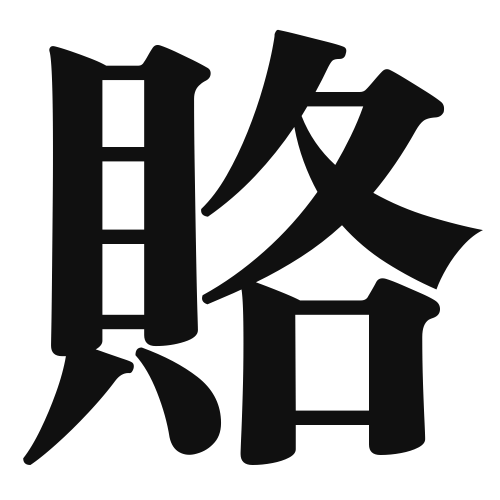1. Overview of Meaning
The kanji “賂” (pronounced “ro” in Japanese) means “bribe” or “graft.” It refers to the act of giving something, usually money or gifts, to someone in a position of power in order to influence their actions or decisions.
2. Formation and Radical
The kanji “賂” is a compound character (会意文字) that combines elements to convey its meaning. It consists of the radical “貝” (shell), which is often associated with money or valuables, and the phonetic component “lo” (ロ), which contributes to its pronunciation.
The radical “貝” is commonly found in kanji related to wealth and trade.
3. Examples of Usage
Common words and phrases that include “賂” are:
- 賄賂 (わいろ, wairo) – “bribe”
- 賄賂を贈る (わいろをおくる, wairo o okuru) – “to give a bribe”
Example sentence in daily conversation:
「彼は賄賂を受け取ったと言われている。」
(He is said to have accepted a bribe.)
4. Synonyms and Antonyms
Similar kanji with related meanings include:
- 贈賄 (ぞうわい, zouwai) – “offering a bribe,” which emphasizes the act of giving.
Antonyms include:
- 正直 (しょうじき, shoujiki) – “honesty,” which represents the opposite of corrupt practices.
5. Cultural and Historical Background
The concept of “賂” is deeply rooted in Japanese culture, where bribery is often viewed negatively. It is associated with corruption and unethical behavior in both politics and business.
Proverbs and idioms related to this concept include:
- 「賄賂は悪の根源」 (Bribery is the root of evil).
This reflects the societal disdain for corruption and the importance of integrity in Japanese culture.
